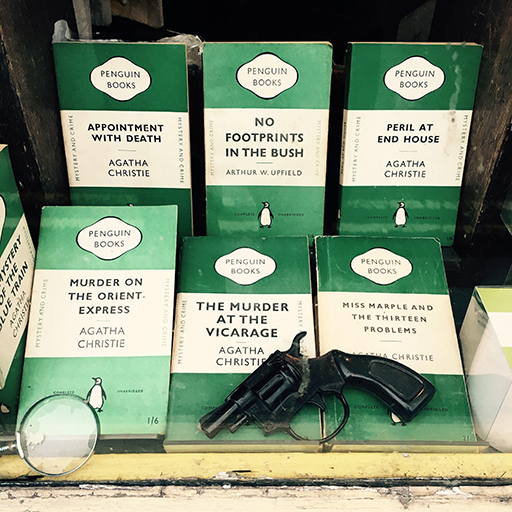1.1 Societies fearful of, yet fascinated by crime
Many societies across the globe are characterised by a culture of not only fear about crime but also of fascination. In popular culture – films, books and other forms of media – people hear stories about crime that suggest it is something to be feared and diminished: a society frightened of crime.
In other sets of stories that people hear and consume, crime is presented as macabre but glamorous, fearful but fascinating. It seems people cannot get enough of crime and these stories and in this instance it is a society fascinated by crime.
Many people are seemingly both seduced and repulsed by stories of crimes and criminals. As the criminologist Jack Katz (2013, pp. 229) notes, ‘Follow vandals and amateur shoplifters as they duck into alleys ... and you will be moved by their delight in deviance ... Watch the strutting street display [of gang members] and you will be struck by the awesome fascination that symbols of evil hold ....’. Why else are TV programmes that feature ‘criminals caught in the act’ or ‘police in action’ so popular?
Both fictionalised and true crime stories that are told through film, plays, books and television tend to represent crime in ways that criminologists sometimes refer to as a common sense view of crime. ‘Common sense’ understandings are often just personal opinions that take for granted that there is only one way to understand the problem. It is not that there is no grain of truth in such stories, or that they are simply ‘wrong’ and criminologists will come along with the ‘right’ point of view; however, these common-sense views often include details and facts that are all too real or appear to be real. It is important to remember there is also always room for doubt.
Some points to hold on to as you move to the next section of the course:
- Social scientists and criminologists aim to think about crime in a systematic way and seek to look beyond the ‘common sense’ view of crime.
- Individuals and societies construct stories (often referred to as ‘narratives’ in the social sciences) about themselves. These stories or narratives are a helpful means by which people describe and explain their lives. However, it is important to remember that there is always room for doubt and a single story can be told in an entirely different way when viewed from a different perspective.
- Society is fascinated and attracted by stories and representations of crimes and criminals, whilst at the same time fearful of them.

